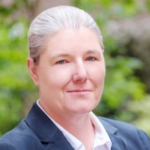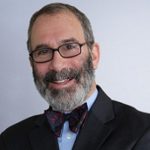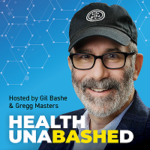A Conversation with Amanda McClelland
 Amanda McClelland, Senior Vice President, Prevent Epidemics, Resolve to Save Lives
Amanda McClelland, Senior Vice President, Prevent Epidemics, Resolve to Save Lives
Twitter: @ResolveTSL
Twitter: @AmandaMcClella2
Amanda McClelland has more than 15 years’ experience in international public health management. Amanda previously served as Global Emergency Health Advisor for the International Federation of Red Cross Red Crescent (IFRC) where she focused on emergency health, epidemic control, mass casualty in low resource settings, disease prevention and response operations.
Listen to the Conversation
Episode Takeaways
- Hear from Amanda McClelland, senior vice president from Resolve to Save Lives, of the world’s great public health experts in the trenches of addressing some of the world’s greatest infectious and non-communicable disease epidemics in developing and developed nations including deadly diseases such as Ebola, SARS, COVID and more.
- Ebola stands out as a turning point in how Africa and world manages change and that an outbreak anywhere can become an outbreak anywhere. Ebola cases in more than eight African nations became a global public health challenge after one Western healthcare worker became infected. It was only after a volunteer health worker became ill did the world mobilize. More than 500 local health workers gave their lives on the frontlines attempting to stem this infectious disease.
- McClelland outlines where more must be done to guard the health of our frontlines workers as government directives and public resistance to guidance place professionals at risk. “It’s not a question of whether we will face a health worker shortage, it’s a question of how bad.” Everyone with a Twitter account is now able to spread misinformation which creates new risks for healthcare.
- Vaccination was once a given. Now, misinformation is undermining public health – undermining vaccination rates, placing healthcare workers at risk and giving rise to terrible diseases that we once thought vanquished. The return of polio is among one of the many examples that face developing and urban communities resulting from the rise of public health naysayers.
- The new crisis is the rising resistance to childhood vaccination in high-income nations. The misconception gap from the generations that saw the terror of measles, diphtheria and polio. The visual risk impact is lost on the current generation of parents. The perception of risk – risk of infection and risk of prevention – is influenced by conspiracy theories that must be addressed. Public health professionals today must be both experts at medicine and communication with the people they seek to serve.
Hosts
 Gil Bashe
Gil Bashe
Managing Partner, Chair Global Health, FINN Partners
Twitter: @Gil_Bashe
LinkedIn: Gil Bashe
 Gregg Masters
Gregg Masters
Founder & Managing Director, Health Innovation Media
Twitter: @GreggMastersMPH
LinkedIn: Gregg Masters, MPH
About the Show
 Join digital health advocate and author Gil Bashe, on Health Unabashed, as he discusses the power of collaboration and innovation in improving care across the health ecosystem. Sharing stories and insights from a global perspective, Gil looks at the companies and people who are making a difference and offers his opinions on how to connect the dots to transform the industry for good.
Join digital health advocate and author Gil Bashe, on Health Unabashed, as he discusses the power of collaboration and innovation in improving care across the health ecosystem. Sharing stories and insights from a global perspective, Gil looks at the companies and people who are making a difference and offers his opinions on how to connect the dots to transform the industry for good.
On the radio weekdays at 10:30 am, 6:30 pm, & 2:30 am ET.
